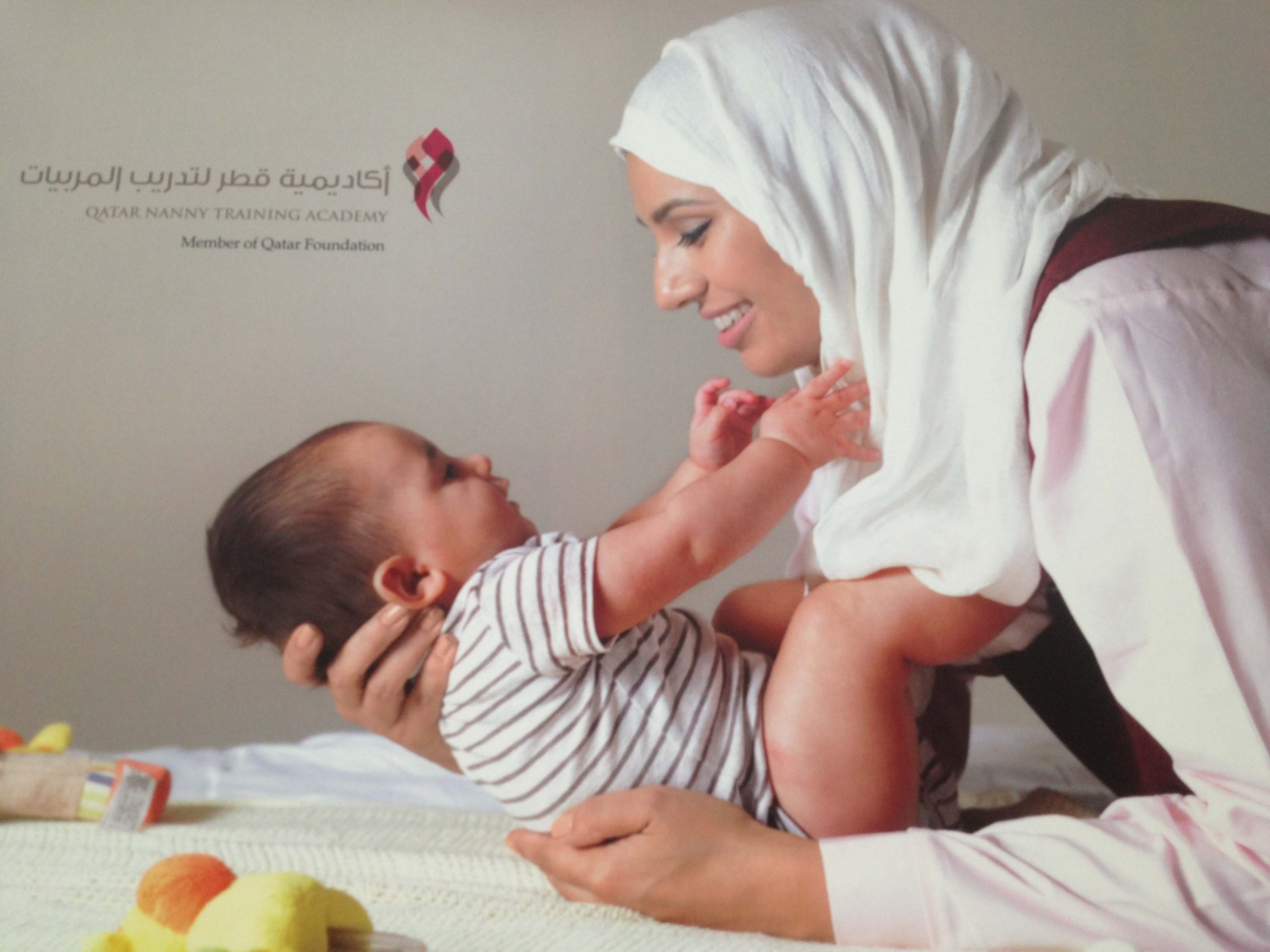
Two years after the launch of a new Qatar Nanny Training Academy, its first class of students have graduated today.
The 14 women have completed courses in first aid, hygiene and nutrition, as well as classes that focused on promoting Arabic in the home and upholding Qatari and Islamic culture and values.

The graduates, who hail from Mauritania and the Comoros, were selected from more than 200 applicants to take part in the program, which is the first of its kind in the Middle East.
Backed by former first lady Sheikha Moza bint Nasser, the academy was announced in December 2012 and enrolled its first batch of students last September.
It is located off of the Doha Expressway, near Landmark Mall, and is backed by Qatar Foundation.
At the academy’s launch in 2012, founding committee member Amal Abdullatif Al-Mannai said that the aim is to “protect children from other cultures that diffuse into the society through Asian nannies in particular.”
Culture clash
In many Gulf countries, children are often looked after by hired help. But the role of “nanny” is usually undertaken by women from non Arabic-speaking countries such as the Philippines and Indonesia, who officially live and work in Qatar as “housemaids.”
Because caring for children and taking care of a home entail very different job descriptions, tensions often exist in households where domestic help is expected to fill both roles.
There are often also many social, cultural and religious differences between domestic workers and their sponsors.
Addressing these problems, promotional material from the academy states:
“This gives rise to a generation of young Arabs who are unacquainted with our proud Arab, Islamic heritage. Where do we go from here?”
The new graduates are all Arabic-speaking and as part of their 10-month training, took classes in the Arabic language, Islamic studies and Qatari culture and values. This is in addition to lessons in first aid, hygiene, nutrition and children’s education.
In a presentation during today’s graduation ceremony, Dr. Yousif al-Mulla, academy chairman, said, “Caring for Qatari children is at the top of Qatar state’s priorities. They represent the future of our nation.”
Better pay
Many of the first batch of nannies have bachelor’s degrees and some have Master’s.
All 14 have secured jobs with local families, and a new category of visa – the professional nanny – has been established to differentiate these women from other household staff, al-Mulla told Doha News.
Though the trainees specifically learned a great deal about Qatari culture, they can also work for expat families, he added.
Families are strictly vetted to ensure they are appropriate employers and must agree to a search of their immigration record to ensure they have had no complaints levied against them by previous employees.
Their homes are also inspected to make sure they can provide suitable accommodation for their nannies.

The sponsors must also agree to pay a minimum monthly salary of QR3,000, rising to QR4,800 for more qualified nannies, and sign two Qatar Foundation contracts – with the academy and also with their new employee.
The contract specifies holiday entitlement, outlines maximum working hours and includes other mandatory conditions of employment.
To enroll in the nanny training program, applicants must be Muslim, under 35 years old, be fluent in speaking and writing Arabic and have at least a high school diploma.
They must also have proven child-care experience and agree to a full criminal records check, medical exam and have the appropriate residency papers.
Course expansion
Following a successful first year, the program has already been expanded and 34 new students from Djibuti and Comoros will start their training in the coming weeks. Students from Somalia are also expected to take part “soon.”
Al-Mulla added that future plans for the academy include establishing childcare classes for parents.
Inaugural class valedictorian Oumayat Mohamed Saindou, who grew up in Qatar and lived in Comoros before returning here, said: “It has been a great experience. I have learned so much and I am already working with a lovely family.”
Thoughts?







